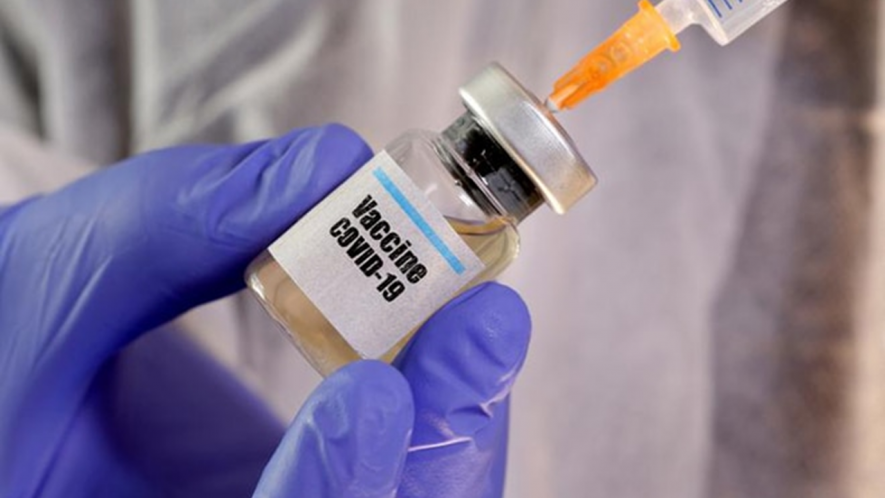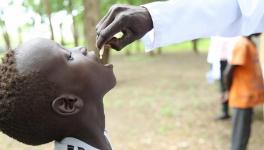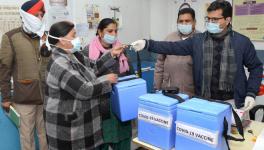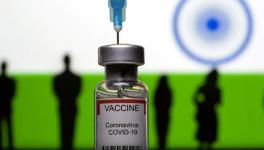People’s Science Network Urges Centre to Address Vaccine Shortage, Ramp up Testing

The Union government must increase testing, tracing, and surveillance while also addressing vaccine shortage and equity to tackle the brutal second wave of Covid-19 in India, All India People’s Science Network (AIPSN) said in a statement.
AIPSN has also released a paper on the second wave of Covid-19, which said, “Going by current trends, India is likely to reach even higher daily case rates, with these new highs prevailing for a prolonged period, unless strong and effective steps are urgently taken. Mortality and hospitalisation rates are on the rise dangerously in parts of the country and show a worrying trend overall.”
AIPSN has asked the government to accept responsibility and stop blaming the states for the recent rise in the number of cases. It said, “A very belated high-level meeting at the PMO a week ago ‘emphasized that the reasons for the sharper rise in cases could be mainly attributed to the severe decline in compliance of Covid-appropriate behavior primarily in terms of use of masks and maintaining ‘2 Gaj ki Doori’ [two yards distance], pandemic fatigue and lack of effective implementation of containment measures at the field level.’ However, they pointed out, this analysis blames the citizens and the states for this crisis, which is disingenuous, hypocritical, and even dangerous, and only allows the central government to evade responsibility for the current situation.
According to the experts, it is important that testing for Covid-19 be ramped up significantly, with focus on RT-PCR. The testing needs to be strategic, targeting contacts of positive cases and symptomatic cases in clusters identified through community surveillance and contact tracing. The paper said, “The main public health response to the present second wave, irrespective of these variants and other factors, remains broadly the same as was advocated earlier, but learning from missteps and experience during the first wave. India needs to vigorously test, trace, isolate and treat infected persons, besides putting in place decentralized, locally relevant and evidence-based surveillance and containment strategies.”
It also pointed out that contact tracing was the weakest aspect of the response by governments at the Centre and most states during the first wave, with the Aarogya Setu App proving to be ineffective. AIPSN has said that it is important that the governments trace all contacts quickly, test and then isolate them if infected, which is essential for quick containment of the spread of the disease, along with community-level surveillance measures to identify potential hotspots.
AIPSN has also urged the government to address vaccine shortage and equity. The paper said, “There is a seriously mistaken tendency among authorities, and also some commentators, to look to vaccines as a silver bullet to tackle the pandemic and bring this second wave to an end.” India is currently vaccinating an average of 3-4 million persons per day and has so far administered around 85 million doses. The paper pointed out that while this may look good in absolute numbers, especially for a developing country, India’s vaccinations per capita rank well below the global average.
It pointed out that in both urban and rural areas, people are missing out on vaccinations because they do not know where vaccines are being administered, how to get vaccinated, how to enrol for vaccinations, they do not have smart phones etc. “These deficiencies need to be urgently rectified by suitable modifications in the vaccination strategy, especially by taking the vaccines to eligible populations at community level and conducting widespread communication campaigns on the vaccination drive. Continuing vaccine hesitancy also needs to be overcome,” it said.
AIPSN has asked the government to scale up vaccine production and availability. According to reports, Serum Institute of India (SII) is producing around 21.6 lakh doses of Covishield daily or 648 lakh (64.8 million) doses per month. Bharat Biotech is manufacturing around 1.6 lakh doses of Covaxin daily (4.8 million doses per month). The total production is therefore enough only for 23 lakh doses daily, much below even current vaccination rates, let alone an expanded vaccination drive.
Get the latest reports & analysis with people's perspective on Protests, movements & deep analytical videos, discussions of the current affairs in your Telegram app. Subscribe to NewsClick's Telegram channel & get Real-Time updates on stories, as they get published on our website.
























